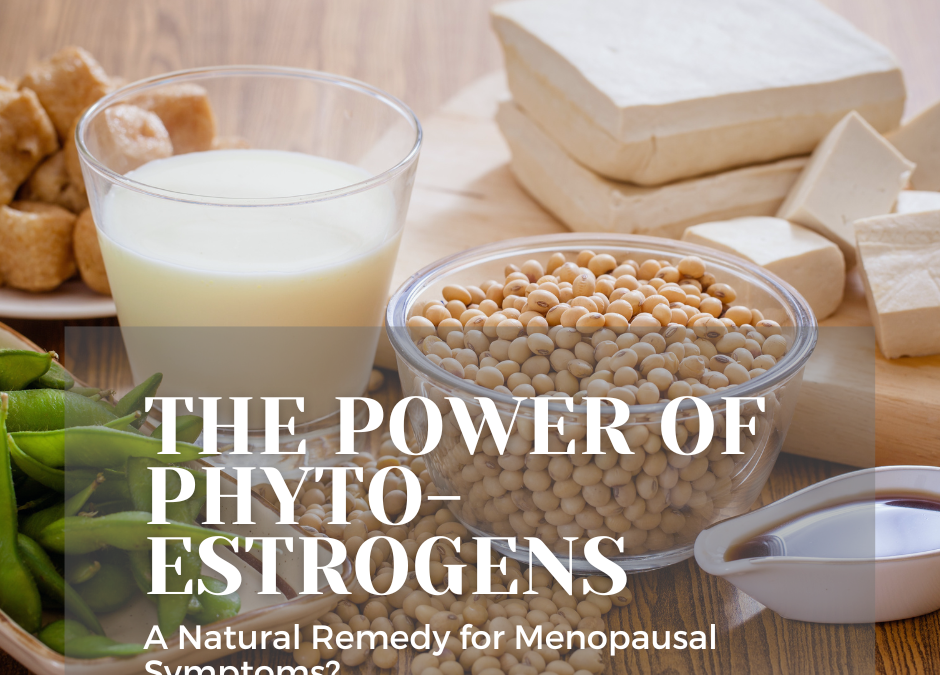Phytoestrogens are plant-derived compounds that are found in a wide variety of foods, most notably soy. A plethora of health benefits including a lowered risk of osteoporosis, heart disease, breast cancer, and menopausal symptoms, are frequently attributed to phytoestrogens. However, they are also considered endocrine disruptors, indicating that they have the potential to cause adverse health effects as well.
Chemical structures of phytoestrogens are similar to that of our own estrogen, enabling them to mimic or interfere with the body’s hormones. They have the ability to bind to the body’s estrogen receptors, exerting both estrogenic and antiestrogenic effects. They are not just one molecule but a class of molecules, including isoflavones, lignans, coumestans, and stilbenes. Isoflavones, such as genistein and daidzein, are found in soybeans, chickpeas, and other legumes, while lignans are found in flaxseeds, whole grains, and some fruits and vegetables.
For women over 40, especially those entering or experiencing menopause, phytoestrogens may offer several health benefits. They can mimic the body’s own estrogen, which often decreases during menopause, leading to symptoms like hot flashes and night sweats. Therefore, consuming phytoestrogens might help alleviate these symptoms. The drop in estrogen during menopause can also lead to bone loss and osteoporosis. Phytoestrogens may help maintain bone density and reduce this risk. They have also been linked to lower levels of LDL (bad) cholesterol and may help reduce the risk of heart disease, which increases after menopause. Some studies even suggest that phytoestrogens may help lower the risk of breast cancer.
The Research
Several studies have been done to explore these benefits further. A study published in the journal “Menopause” in 2011, titled “Soy, Isoflavones, and Prevalence of Menopausal Symptoms,” examined over 1,100 Japanese women aged 35-54. The researchers found that women with a higher intake of soy and isoflavones experienced fewer and less severe menopausal symptoms, such as hot flashes and night sweats, compared to those with a lower intake. The study suggests that the isoflavones in soy products can mimic estrogen in the body, helping to ease these symptoms as natural estrogen levels drop during menopause.
Another research study, “Utilization of Isoflavones in Soybeans for Women with Menopausal Syndrome: An Overview,” explored the impact of isoflavones, a type of phytoestrogen found in soybeans, on menopausal symptoms in women. It acknowledged that menopausal symptoms, such as hot flashes, night sweats, mood swings, and bone loss, are often attributed to a decline in estrogen levels. It suggested that isoflavones, due to their similar structure to human estrogen, can bind to estrogen receptors and exert estrogen-like effects, potentially alleviating these symptoms. The research emphasized the higher intake of soy products in Asian diets, which corresponds with a lower prevalence of menopausal symptoms in these populations. This is suggestive of the beneficial role that soy and its isoflavones can play in managing menopause.
However, the study also recognized that responses to isoflavones can vary greatly among individuals due to factors like gut microbiota and individual metabolic differences. Therefore, while isoflavones in soybeans could potentially be a natural alternative to hormone replacement therapy for some women, further research and personalized approaches may be needed.
A Note of Caution
While these studies suggest a potential benefit of soy intake for menopausal symptoms, it’s crucial to note that individual reactions to soy and isoflavones can vary. The effectiveness of soy isoflavones can differ based on factors like gut microbiota and individual metabolic differences.
Moreover, the relationship between phytoestrogens and various forms of cancer, including endometrial cancer, is complex and not entirely clear. While some studies suggest a lower risk with a high intake of phytoestrogens, others show no significant association.
Given the complexity and inconclusive nature of existing research, it’s recommended that individuals with a high risk of hormone-sensitive cancers or a history of such cancers should consult with their healthcare provider before increasing their intake of phytoestrogen-rich foods.
In conclusion, while phytoestrogens could be a natural remedy for some women going through menopause, more research is needed. As always, it’s best to consult with a healthcare provider before making significant dietary changes.
References:
- https://academic.oup.com/humupd/article/11/5/495/605995
- https://www.ncbi.nlm.nih.gov/pmc/articles/PMC8004126/

